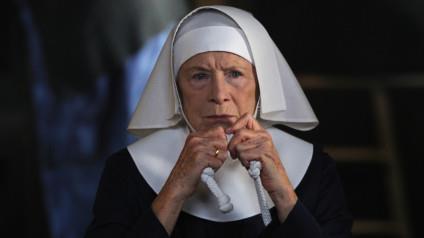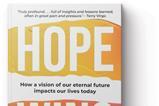The experience of Call the Midwife’s Sister Monica Joan is much more common than we think, says Tony Horsfall. Here’s why we shouldn’t be afraid of our doubts and why they can be good for our faith

In the current series of Call The Midwife, elderly Sister Monica Joan is struggling, not just with growing older, but with her faith. In a conversation with the gardener, Fred, towards the end of episode one, she says: “We are trained to hide so many things from others: fear, loneliness, doubt. The less we speak of our faults to others, the more they roar in our own ears… in the religious life, we speak of an extended period of doubt as ‘a dark night of the soul’. There is no light anywhere, and the very act of seeking it – of seeking him – only emphasises the void…”
Times of darkness are often normal parts of the process by which we are led closer to God
It is a poignant moment. Many of us have periods of darkness in our lives; moments of despair or doubt when we feel we are losing our way, or have been abandoned by God, as if he is hiding his face from us. Normally these periods do not last long but sometimes, an experience of spiritual darkness can feel as if it will never end. It is known, as Sister Monica Joan says, as the ‘dark night of the soul’.
False assumptions
Christians often assume that, if we are living the victorious life, we should not experience doubt or fear. However, the dark night has long been recognised as a valid part of the Christian journey; indeed as a mark of maturity and not one of weakness. St Teresa of Avila (1515-82) and St John of the Cross (1542-91) both saw the dark night as a prelude to the fullest experience of intimacy with God.
There is a popular saying: ‘absence makes the heart grow fonder’. A withdrawal of the tangible sense of God’s nearness can make us the long for him more, purifying and deepening our faith. In the dark night, we can come to realise that all else is worthless compared to the joy of knowing and experiencing God’s love.
Yet it is clearly not a fun place to be. Some have described it as the lights going out, the lines going dead. God is not answering his phone. As hard as we look, there is no light at the end of the tunnel. We ask: where is God now? The experience of God’s absence is felt most painfully by those who have been most aware of his presence. It is bewildering and baffling, especially when there is no discernible reason for it.
A biblical example
But is such an experience grounded in biblical reality, or it is the product of our imagination? Some of the great Bible characters reflect the reality of this experience: Elijah, fleeing in terror from Jezebel, physically and emotionally exhausted, retires to a cave and sinks into a dark night. Certainty and confidence are replaced by doubt and confusion and he despairs even of life itself. (1 Kings 19:1-9)
God is carrying you - even in the darkness - to the place he wants you to be
The Psalmist cried: “How long, O Lord? Will you forget me for ever? How long will you hide your face from me? How long must I wrestle with my thoughts and every day have sorrow in my heart?” (Psalm 13:1-2). Isaiah recognised the problem when he said: “Let him who walks in the dark, who has no light, trust in the name of the Lord and rely on his God.” (Isaiah 50:10).
Elijah’s dark night was allowed by God. It did not mean that God was displeased with him – or with us if we experience the same. Some have compared it to the experience of Jonah in the belly of the whale: it feels like you are going nowhere, but God is carrying you - even in the darkness - to the place he wants you to be.
Finding peace in the night
So, what do we do if we’re experiencing a dark night? Here are some helpful tips:
-
Submit to God’s gracious dealings with us and, like Job, keep trusting him. We can fix our eyes on Jesus (Hebrews 12:1-4) and to continue to praise God despite our feelings (Psalm 34:1-3).
-
Stay physically active and get good rest. As Elijah discovered, sleep can be profoundly restorative. Something as practical as a good night’s rest can make a world of difference to how we cope with a dark night.
-
Find a wise friend to share with - and be honest with God too. Journaling can help us speak frankly to God, and remember: he can cope with our anger and frustration.
-
Finally, wait patiently for the Lord. One of the desert fathers, Isaac of Nineveh, gave this advice: “Wrap your head in your cloak and sleep, until the hour of darkness is over, but do not leave your cell.”
When we realise that times of darkness are often normal parts of the process by which we are led closer to God, we need not panic or be afraid but can put our hope in God. We can share David’s optimism: “I am still confident of this: I will see the goodness of the Lord in the land of the living. Wait for the Lord; be strong and take heart and wait for the Lord.” (Psalm 27:13-14).
Adapted from Mentoring for Spiritual Growth (BRF) by Tony Horsfall, available now.

































